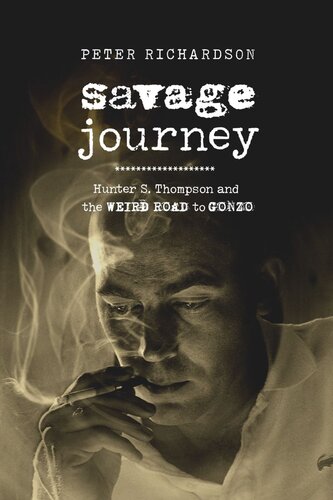

Most ebook files are in PDF format, so you can easily read them using various software such as Foxit Reader or directly on the Google Chrome browser.
Some ebook files are released by publishers in other formats such as .awz, .mobi, .epub, .fb2, etc. You may need to install specific software to read these formats on mobile/PC, such as Calibre.
Please read the tutorial at this link: https://ebookbell.com/faq
We offer FREE conversion to the popular formats you request; however, this may take some time. Therefore, right after payment, please email us, and we will try to provide the service as quickly as possible.
For some exceptional file formats or broken links (if any), please refrain from opening any disputes. Instead, email us first, and we will try to assist within a maximum of 6 hours.
EbookBell Team

0.0
0 reviewsA superbly crafted study of Hunter S. Thompson’s literary formation, achievement, and continuing relevance.
Savage Journey is a "supremely crafted" study of Hunter S. Thompson's literary formation and achievement. Focusing on Thompson's influences, development, and unique model of authorship, Savage Journey argues that his literary formation was largely a San Francisco story. During the 1960s, Thompson rode with the Hell's Angels, explored the San Francisco counterculture, and met talented editors who shared his dissatisfaction with mainstream journalism. Author Peter Richardson traces Thompson's transition during this time from New Journalist to cofounder of Gonzo journalism. He also endorses Thompson's later claim that he was one of the best writers using the English language as both a musical instrument and a political weapon. Although Thompson's political commentary was often hyperbolic, Richardson shows that much of it was also prophetic.
Fifty years after the publication of Fear and Loathing in Las Vegas, and more than a decade after his death, Thompson's celebrity continues to obscure his literary achievement. This book refocuses our understanding of that achievement by mapping Thompson's influences, probing the development of his signature style, and tracing the reception of his major works. It concludes that Thompson was not only a gifted journalist, satirist, and media critic, but also the most distinctive American voice in the second half of the twentieth century.